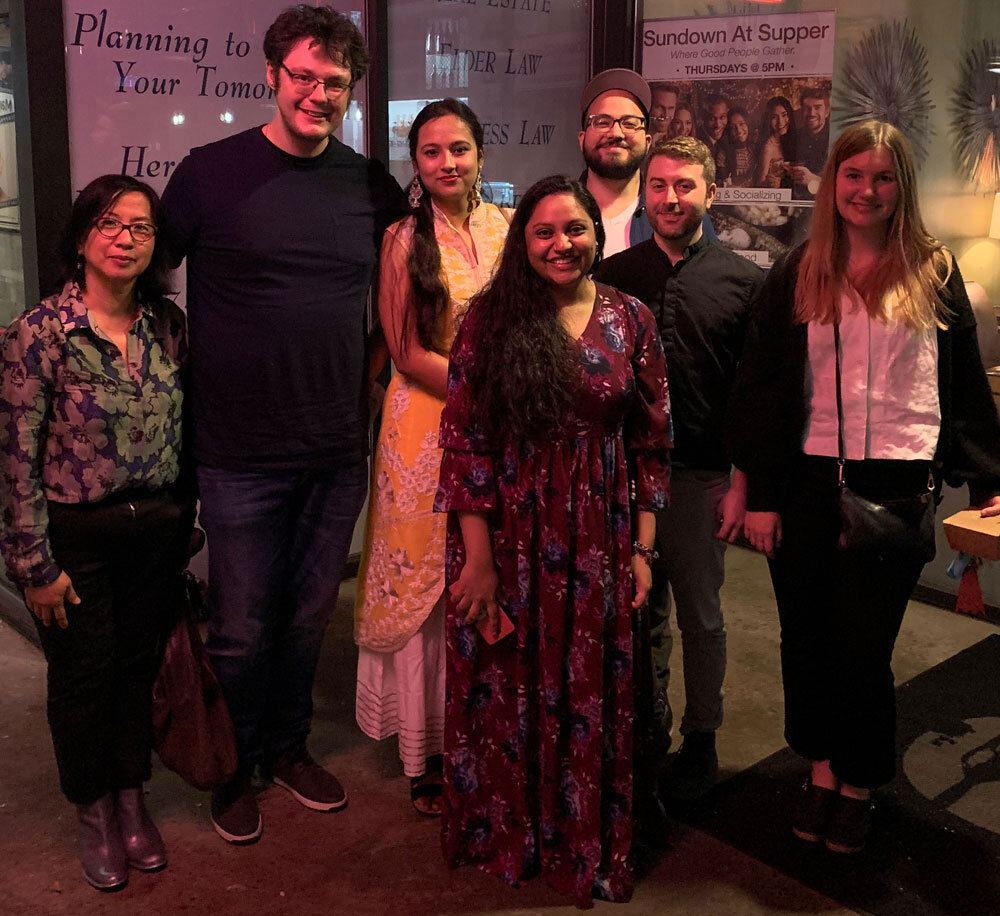A Poet Laureate Who Must Now Voice Sic Semper Tyrannis
/Virginia Poet Laureate, Luisa A. Igloria
But before the teacher was the student. Luisa’s propensity for words began when she was just three years old, learning to read for the first time. An only child to parents with a 20-year gap between them, she was taken everywhere they went and kept occupied in a corner with a book, or paper and pencil. Her father nourished her love for words by buying her a new book or comic book, whenever he went to D&S Fine Foods in Baguio. The store became Luisa’s wellspring for her first copy of Little Women and several volumes of Nancy Drew mysteries.
Beyond the printed word, however, she also immersed herself in Dagiti Sarsarita ni Uncle Pete, an Ilocano storytelling radio show, which added a new dimension to words by providing “the rhythms of storytelling” and the sound effects of trotting horses, clanging swords, creaking doors, and more. These are her earliest memories of words, and it is no wonder then that much of her work frames the everyday in lyrical language: “A cardinal touches down on a Japanese maple.” She credits Delfin L. Tolentino Jr., Benjie Abellera, the late Francis “Butch” Macansantos, and Nonilon V. Queaño, with honing her craft in her years at the University of the Philippines Baguio on Governor Pack Road, up in the country’s summer capital.
While Luisa is not the first poet laureate of Virginia of Filipino ethnicity (Sofia Starnes was of Spanish-Filipino ancestry), her installation could not have come at a more auspicious time in contemporary US history, with Black Lives Matter, immigration issues, and the COVID-19 pandemic plaguing the North American nation to distraction and destruction. Like the poet-seers of old, Luisa may have foreseen the bearing of the times, when she wrote her latest poetry book, Maps for Migrants and Ghosts, which the Southern Illinois University Press launched this September 2020. (http://siupress.siu.edu/books/978-0-8093-3792-7) Besides her fecundity in expanding her body of literature, Luisa is also an ever-winning, multi-awarded poet. https://www.luisaigloria.com/bio.html)
Luisa's MFA students and Ilya Kaminsky, when Kaminsky was a guest in the 2019 ODU Literary Festival
Beside her, other Filipino-Americans have also stood out in other places across the United States of America: JoAnn Balingit (Poet Laureate, Delaware); Arlene Biala (Poet Laureate, Santa Clara County, California); Aileen Cassinetto (Poet Laureate, San Mateo County, California); Janice Lobo Sapigao (current Poet Laureate, Santa Clara County, California), to name just four of several more. With Luisa’s inauguration, the niche of Filipino American writing is further deepened in US literature.
As a poet of color, Luisa has her work cut out for her. “I think it’s significant as an indicator of important changes that are starting to manifest more forcefully in this country, that have to do with the ongoing re-evaluation of history and the place that marginalized communities have been accorded in it.” Her name is now indelibly written in a roster that includes Rita Dove, Tim Seibles, and Sofia Starnes—all poets of color sharing the title of Virginia Poet Laureate.
Luisa with friend and former colleague, Tim Seibles, Poet Laureate of VA, 2017-18
When asked who her own favorite poet laureate is, Luisa says it’s a hard question to answer. “Everyone who has been appointed Poet Laureate is someone whose body of work is impressive and moving in ways that are unique but at the same time feel accessible to practically everyone. But I have to say that, on the national level, I most deeply resonate with the work of the US Poets Laureate who are writers of color. Everyone who is a poet laureate must in some way address, in poetry, the idea of what it means to live as a person at their particular juncture and place in history; but for me, it’s the poets of color whose experiences most closely address my own.”
While it is still the early days of her two-year tenure as VA Poet Laureate, Luisa has Governor Ralph Northam’s announcement pointing out a path to shaping her own words. From the governor’s office in Richmond, she received the following missive: “Governor Northam is focused on building a Commonwealth that works better for all people, no matter who they are or where they live. During your term, you will assist the Governor in solving real problems real people face.” And Luisa is up to the task. “While I haven’t had a chance to sit down and think about specific details, the VA Poet Laureateship is such a unique position for service and engagement through poetry. I hope to have many conversations with others and to find meaningful ways to support and promote the voices of Virginian poets in particular and the work of poets and poetry in general as an important part of living in these times.”
Although the poets laureate of Virginia do not receive any monetary compensation during their term, it is obvious that all have remained true to creating an authentic poetic voice of their times. We expect no less of Luisa A. Igloria in the coming years.
Agatha Verdadero is back to her passions of writing, teaching, publishing, and the outdoors, after a long hiatus. She has returned home to Kenya with her beloved poodle mix, Sam.
More articles from Agatha Verdadero






